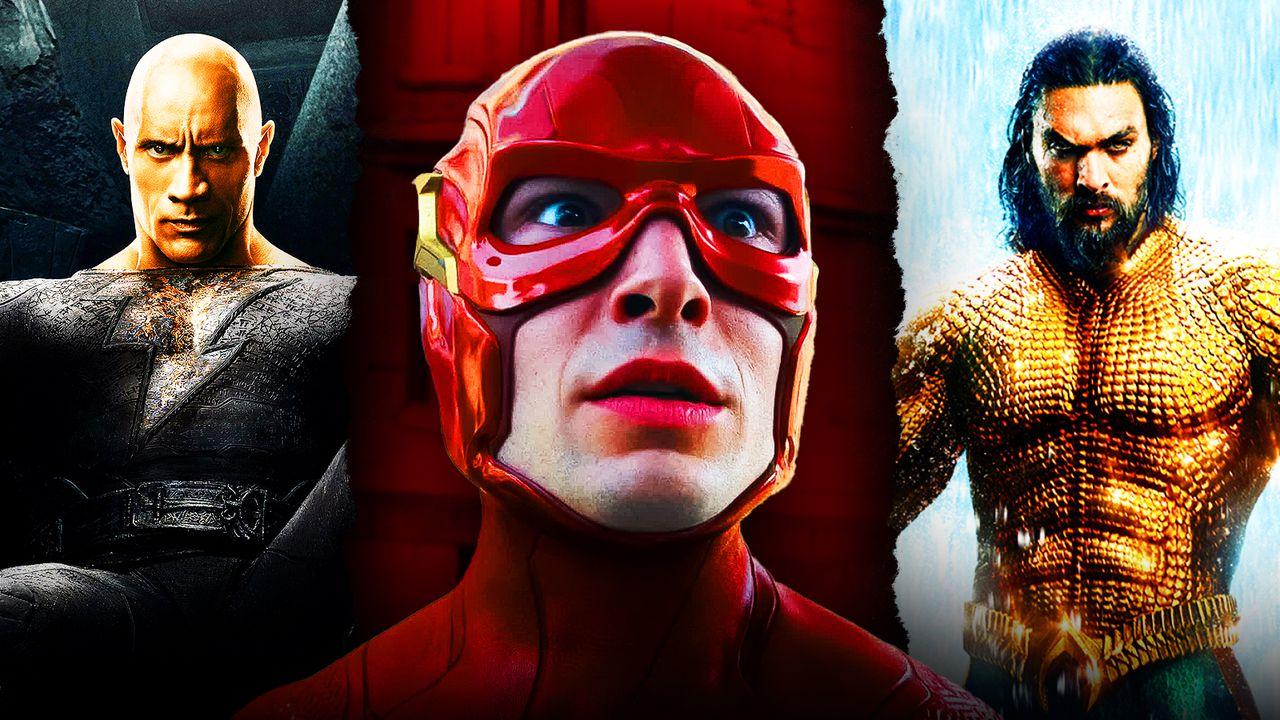
The Flash was one of the biggest box office flops in DCEU superhero history.
DC has recently been on a streak of box office disappointments, perhaps the greatest of which has come with The Flash.
The speedster blockbuster has been called one of the worst flops in Warner Bros. studio history and even one of the biggest disasters to ever hit Hollywood.
The Flash's Box Office Flop Explained

DC developed The Flash with high expectations for success, granting the Ezra Miller superhero event a production budget of $200 million and a hefty marketing price tag of $200 million, meaning it had to make a lot of money to break even.
But alas, The Flash only turned over $268.53 million worldwide ($108.13 million domestic and $160.4 million international), leaving it with the ninth-highest box office in the DCEU out of 14 theatrical releases.
For context, this is barely higher than that of the MCU's lowest-grossing movie, The Incredible Hulk, which brought in just $265.57 million - not factoring in inflation which would leave The Flash significantly lower.
Even upon its Max streaming release, The Flash struggled to bring in fans with just 1.1 million U.S. households in its first three days - according to Samba TV - down from Black Adam's 1.2 million but up from Shazam! Fury of the Gods' 967k in its opening six days on the service.
So, for comparison purposes, here are three of the DCEU's biggest box office losses from its decade-long and 14 movie franchise tenure - excluding this December's Aquaman and the Lost Kingdom.
LOSS: Justice League
Due to its troubled production and massive reshoots under Joss Whedon, Justice League was one of the worst business cases in Hollywood history. Being made on an expensive $300 million production budget, the poor reviews led to just a $657.93 worldwide gross and estimated losses of $50-100 million.
WIN: Aquaman
Few would expect Aquaman to be DC's highest-grossing superhero movie, and yet the movie brought in $1.14 billion, largely due to its impressive $813.42 million gross overseas. Made on a fairly average budget of $160 million, the box office turned over a profit of $260.5 million, making it by far the DCEU's biggest win.
LOSS: Black Adam
Black Adam wasn't a massive financial disaster at $391.26 million, but its $200 million budget made it tough to bring in much money. As such, reports on its financial result conflict between claims of it losing $50-100 million to Dwayne Johnson claiming it turned a small profit. Either way, the result was disappointing.
WIN: Shazam!
Shazam! didn't produce any particularly insane box office with just $363.56 million worldwide, but what made this such a win for the DCEU was its low production budget of just $85 million, allowing it to bring in a $74 million profit.
LOSS: Wonder Woman 1984 & The Suicide Squad
Both Wonder Woman 1984 and The Suicide Squad suffered the same unfortunate fate of being released during the pandemic and simultaneously on HBO Max. The pair turned over around $166-167 million on budgets of $200 and $185 million, respectively, leading to some sizable losses.
WIN: Wonder Woman
Releasing in the early days of the DCEU when the franchise was at its all-time high, Wonder Woman struck gold at the box office. The first modern female superhero movie grossed $822.8 million on a reasonable $150 million production budget, allowing it to turn an impressive profit of $252.9 million.
Why Was The Flash Such a Disaster?
From Black Adam to The Flash, DC is on a streak of three box office disasters in a row - four if including Blue Beetle which is on track for disappointment, too. What's going so wrong with the blue brand? And why was Ezra Miller's speedster flick particularly such a financial flop?
As The Flash even failed to pull in any mindblowing numbers on home streaming, it appears the issue goes beyond a lack of desire to turn out to theaters for the DC movie but rather a lack of interest in the blockbuster whatsoever.
One reason likely comes in the upcoming DC reboot, which had become widespread by the time The Flash came around in June, having already had its 10 projects announced by James Gunn six months earlier in January.
With a DCU reboot on the way in just two years that will introduce fresh versions of many of these heroes, why should fans show up for the final few projects in a universe that soon won't matter anyway?
If The Flash had opened with rave reviews that delivered on early promises of one of the best superhero movies of all time, perhaps fans may have been more willing to ignore the reboot issue. After all, standalone DC projects like The Batman and Joker have been able to find great success without the need for connective tissue.
Some will be quick to pin the movie's failure on the Ezra Miller controversy, but much of the general audience, who make up the majority of movie viewership, won't be massively aware of the actor's legal situation; and few will care enough to be deterred from watching a blockbuster over it.
But the bottom line, the DCEU has had a brand image for mixed quality and inconsistent storytelling, having spent its entire existence playing second fiddle to the ever-successful MCU. With that universe now blinking out of existence, most aren't looking to give the DCEU another chance now.
The Flash is streaming now on Max.












